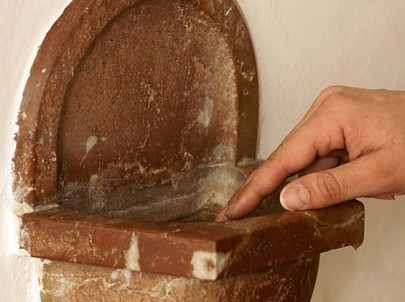April 8, 2014
Russ Douthat is a New York Times columnist. He often writes, surprisingly, about religion.
In last Sunday’s column he wrote: “Here is a seeming paradox of American life. On the one hand, there is a broad social science correlation between religious faith and various social goods – health and happiness, upward mobility, social trust, charitable work and civic participation.”
When you are a faithful Christian Catholic that’s a very consoling message. Scientists can prove statistically that there is a correlation between being a faithful religionist and having things in your life like health, upward mobility, charitable work and you’ll probably be clearly involved in the community in which you live. All good stuff.
But here’s the rub. According to Douthat studies show that “the social goods associated with faith flow almost exclusively from religious participation not from affiliation or nominal belief.”
There are many folks in our society who when asked their religion will say Catholic. Should the surveyor ask how frequently they attend services they often will hear, “Oh, once or twice a year, I guess.” But that answer or one that is similar to it, helps create what is often called the second largest religion in America – former Catholics. The disconnect between saying “I’m a (insert religion) and not participating actively in the Church creates something of the concern that Jesus spoke of when he said, that it is better to be hot or cold, than to be lukewarm.
So, what can we learn from the science that tells us that people who practice their faith thoughtfully and faithfully will indeed have much that is good happening in their life? One of the things that Jesus teaches us is that it is important to be faithful. He even reminds the apostles about the need for prayer. Says to them in the Garden of Gethsemane – could you not watch with me for a little longer? Jesus was away praying; the apostles were waiting and then they were sleeping. It’s a very human reaction – to be drowsy or falling asleep as we do health watches, hospital watches. But Jesus warned the apostles that they needed to be with him; warned them that the spirit is willing but the flesh is weak.
The same can happen to us when it comes to practicing our faith. We can grow a little weary of participating in the Church. Maybe the music doesn’t hit us the way we think it should; perhaps the homilies aren’t what we wish they would be; maybe the people who are worshipping with us are not folks we find compatible. It can be easy to forget that we are not practicing our faith because it makes us feel good. We practice our faith so that we can draw closer to Jesus; so that we can get to know His ways better; so that we can stand with him.
In the process we will be ‘watching with Jesus,’ practicing our faith and receiving the benefits that come with that practice that social scientists tell us are there: health and happiness; upward mobility; social trust, charitable work and civic participation.
